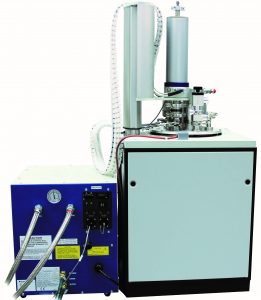New challenges necessitate new machines: Quantum computers are highly complex machines that could give us huge advances in computing speed.
Scientists still face major technical challenges with quantum computers, however. One fundamental problem with quantum bits/qubits is kinetic energy. The chips must be cooled down to absolute zero. It takes elaborate and large cooling mechanisms operating for days to get a quantum chip from room temperature to its running temperature.
LINSEIS Cryo-TMA up to 4 Kelvin – assisting developers in materials analysis for quantum computers
To ensure that all the components of a quantum computer can withstand the extreme sub-zero temperatures, specially developed measuring devices with a low-temperature option are used. Microsoft® ordered a TMA – a measuring device for thermomechanical material testing – for the analysis of the components of a quantum computer. The big challenge here, the temperatures during the material analyses, should reach almost the absolute zero point. The Cryo-TMA we developed achieves a temperature of -269.15 °C at 4 Kelvin, which is almost absolute zero.

TMA (Thermomechanical Analysis) is mainly used to measure the coefficient of thermal expansion (CTE). Measurements can be made under controlled mechanical stress (DIN 51 005, ASTM D 3386, ASTM E 831, ASTM D 696, ISO 11359 – Parts 1 to 3).
With quantum computers, physicists hope to be able to simulate all processes that occur in nature, including the formation of the universe and that of life. Our measurement technology makes a valuable contribution to helping science achieve these goals.